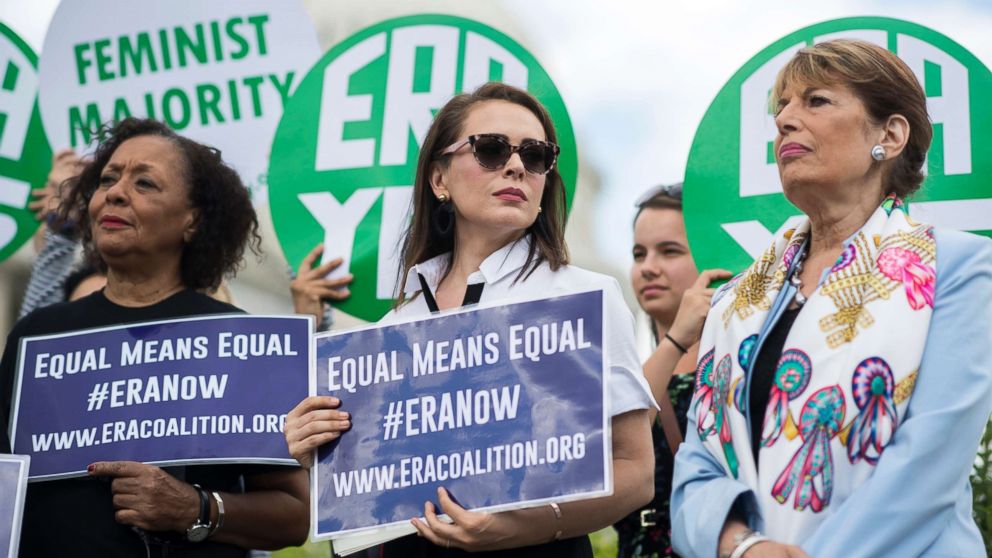Actress Alyssa Milano, lawmakers make new push for Equal Rights Amendment
Forty-six years after Congress originally passed it, the Equal Rights Amendment to the Constitution is just one state short of ratification, and Wednesday actress Alyssa Milano joined with Democratic lawmakers in a campaign calling for that last state to do so.
Milano connected the efforts back to other women’s movements that have gained momentum in the last year in response to a wellspring of reporting about sexual and other types of harassment and abuse in the workplace.
"Women came together, in the last year, to say 'Me Too.' We supported each other and we held men accountable by saying 'Time’s Up.' Well, I’m here today to say, the time is now to pass the ERA so that all citizens of our country have the opportunity to reach their full potential," Milano said during a press conference on Capitol Hill.
Milano was joined by Rep. Carolyn Maloney and other members of Congress. Later Wednesday Maloney was holding a “shadow hearing” where Milano and other stakeholders would testify, so called because it's not officially recognized by a congressional committee. Maloney asked House Judiciary Committee chairman Bob Goodlatte, R-Va., to hold a hearing but he has not responded to her.
The key phrase in the amendment, which Congress approved in March 1972, mandates that “Equality of rights under the law shall not be denied or abridged by the United States or by any state on account of sex.”
While there are more protections against gender discrimination now than in the 1970s, supporters argue that the ERA would provide the broadest protection.
Illinois became the 37th state to ratify the ERA last Wednesday, almost enough to reach the 38 -- or three-quarters of the states needed to ratify a constitutional amendment.
In a very short gaggle with reporters after the press conference, Milano said activists are targeting Virginia to be the last state to ratify it.
But even if Virginia, or another state, ratifies it, opponents might bring challenges. The original authors put a seven-year deadline on ratification, which was later extended to 1982. Opponents might cite that deadline to make the argument that this ratification effort is invalid.
Some opponents have also made a more policy-specific argument, like Illinois state Rep. Peter Breen. During his state’s recent debate over the ERA, he warned that supporters only wanted to see the amendment ratified in order to strengthen abortion rights.
But that argument didn’t even sail with all of his Republican colleagues.
“I am pro-life. I’m a mother of a two-year-old daughter. I am for her and others to know in the state of Illinois she should have the same opportunities as men. Vote yes,” said Republican state Rep. Christine Winger, according to the Chicago Tribune.




